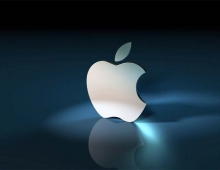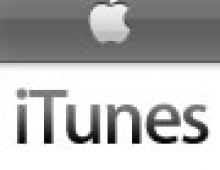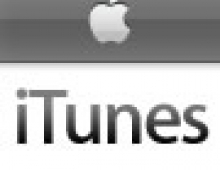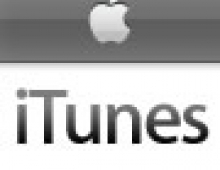
iTunes DRM cracked for GNU/Linux
According to an article on The Register, Norwegian programmer Jon Lech Johansen has opened iTunes locked music a tad further, by allowing people to play songs they've purchased on iTunes Music Store on their GNU/Linux computers.
Johansen cracked iTunes DRM scheme in November by releasing code for a small Windows program that dumps the stream to disk in raw AAC format. This raw format required some trivial additions to convert it to an MP4 file that could be played on any capable computer.
But in the best Apple ease-of-use tradition, Johansen has now made this completely seamless, integrating it with the VideoLAN streaming free software project.
Johansen deduced that the system key that locks the locked music to a single Windows computer is derived from four factors: the serial number of the C: drive, the system BIOS version, the CPU name and the Windows Product ID.
"When you run the VideoLAN Client under Windows it will write the user key to a file. The user key is system independent and can thus be used by the GNU/Linux version of VLC," he explains.
While Apple's iTunes Music Store is restricted to Windows and Apple computers, and Apple only supports its own iPod player as a playback device, VideoLAN is GPL software that runs on a wide variety of computers including Linux, the BSDs, Solaris and even QNX. Although users are at present permitted to burn a CD with music they've purchased, only three Apple or Windows computers are "authorized" at any time. These terms may be tightened at any time, Johansen himself noted recently.
"The restrictions are very frustrating for consumers, and frankly, are unnecessary," Electronic Frontier Foundation attorney Fred Von Lohmann said.
"Every song on iTunes Music Store has been available on the Peer to Peer networks within four hours. All the DRM does is frustrate legitimate consumers; it doesn't stop file sharing," he says. "The real innovation of the last several years was Kazaa and the other file sharing applications. These are leaps and bounds more relevant than iTunes Music Store."
Although the number of downloaders has diminished in the face of lawsuits by the RIAA, tens of millions of Internet users continue to share music on the P2P networks, dwarfing the number of locked-music downloads from DRM stores such as Apple's iTMS.
Apple is widely expected to announce more locked music playback hardware at the MacWorld show in San Francisco this week. But with support growing for flat fee licensing models even amongst record industry executives, today's DRM Goldrush (and the ensuing iTunes vs Windows Media war) could be a very short lived skirmish.
Johansen broke the CSS encryption scheme on DVDs - a case the Norwegian government finally let go - so he could watch a movie that he'd legitimately purchased on his Linux PC. Now millions of Linux users can do the same with iTunes locked music. More information are available in The Register website.
But in the best Apple ease-of-use tradition, Johansen has now made this completely seamless, integrating it with the VideoLAN streaming free software project.
Johansen deduced that the system key that locks the locked music to a single Windows computer is derived from four factors: the serial number of the C: drive, the system BIOS version, the CPU name and the Windows Product ID.
"When you run the VideoLAN Client under Windows it will write the user key to a file. The user key is system independent and can thus be used by the GNU/Linux version of VLC," he explains.
While Apple's iTunes Music Store is restricted to Windows and Apple computers, and Apple only supports its own iPod player as a playback device, VideoLAN is GPL software that runs on a wide variety of computers including Linux, the BSDs, Solaris and even QNX. Although users are at present permitted to burn a CD with music they've purchased, only three Apple or Windows computers are "authorized" at any time. These terms may be tightened at any time, Johansen himself noted recently.
"The restrictions are very frustrating for consumers, and frankly, are unnecessary," Electronic Frontier Foundation attorney Fred Von Lohmann said.
"Every song on iTunes Music Store has been available on the Peer to Peer networks within four hours. All the DRM does is frustrate legitimate consumers; it doesn't stop file sharing," he says. "The real innovation of the last several years was Kazaa and the other file sharing applications. These are leaps and bounds more relevant than iTunes Music Store."
Although the number of downloaders has diminished in the face of lawsuits by the RIAA, tens of millions of Internet users continue to share music on the P2P networks, dwarfing the number of locked-music downloads from DRM stores such as Apple's iTMS.
Apple is widely expected to announce more locked music playback hardware at the MacWorld show in San Francisco this week. But with support growing for flat fee licensing models even amongst record industry executives, today's DRM Goldrush (and the ensuing iTunes vs Windows Media war) could be a very short lived skirmish.
Johansen broke the CSS encryption scheme on DVDs - a case the Norwegian government finally let go - so he could watch a movie that he'd legitimately purchased on his Linux PC. Now millions of Linux users can do the same with iTunes locked music. More information are available in The Register website.





















